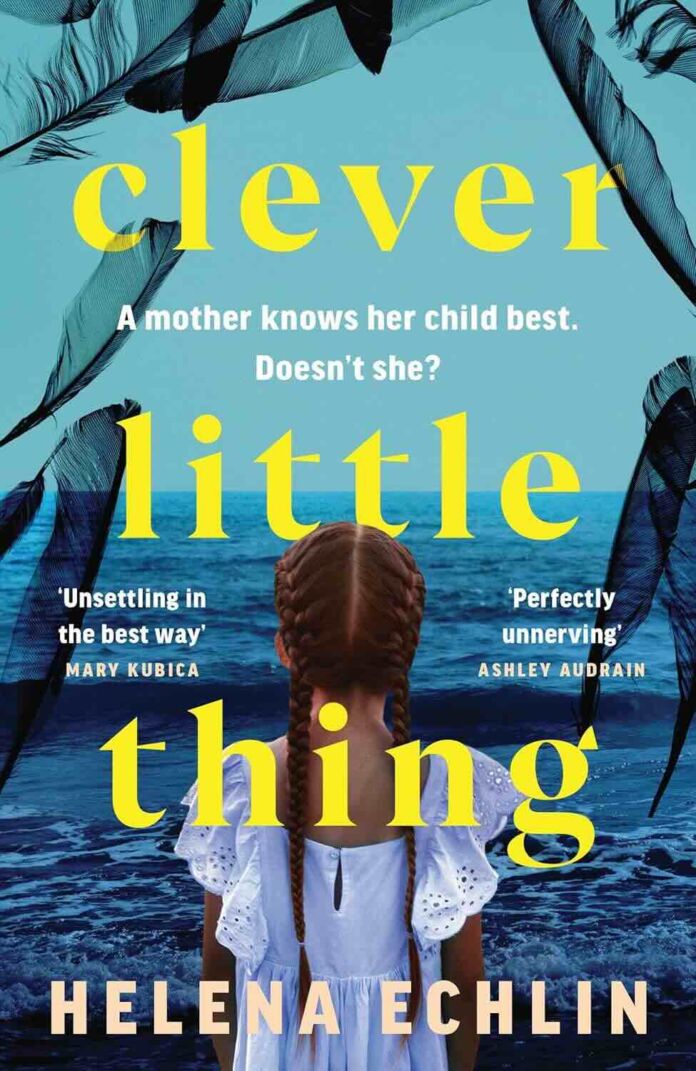In her debut novel, Helena Echlin crafts a mesmerizing narrative that explores the depths of maternal instinct, the complexity of childhood neurodiversity, and the haunting possibility of supernatural possession. Set in the affluent London suburb of Muswell Hill, “Clever Little Thing” follows Charlotte, a mother grappling with her eight-year-old daughter Stella’s dramatic personality change following their babysitter’s sudden death.
Plot and Narrative Structure
The story unfolds through Charlotte’s first-person perspective, creating an intimate yet potentially unreliable narrative. When Stella, a brilliant but challenging child, begins to mirror the mannerisms and preferences of their recently deceased babysitter Blanka, Charlotte becomes convinced that something supernatural is at play. The narrative masterfully weaves between present-day events and flashbacks, gradually revealing the complex web of relationships and secrets that led to this point.
Character Development
Echlin’s character work shines particularly bright in her portrayal of:
- Charlotte – A former lifestyle columnist whose entire identity revolves around motherhood
- Stella – A precocious eight-year-old whose transformation forms the story’s core mystery
- Pete – Charlotte’s seemingly perfect husband with hidden depths
- Blanka – The deceased babysitter whose presence lingers throughout the narrative
- Irina – Blanka’s mother, whose tragic past adds layers to the story
Strengths
Atmospheric Writing
Echlin excels at creating a claustrophobic atmosphere that perfectly captures Charlotte’s increasing paranoia and isolation. The author’s description of Muswell Hill’s affluent yet suffocating environment adds to the story’s psychological tension.
Cultural Depth
The incorporation of Armenian culture and history through Blanka and Irina’s backstory provides rich texture to the narrative while exploring themes of displacement and trauma. The author handles these elements with sensitivity and authenticity.
Psychological Complexity
The book masterfully plays with reality and perception, keeping readers guessing whether they’re witnessing supernatural possession or psychological breakdown. This ambiguity creates a compelling tension that drives the narrative forward.
Areas for Improvement
Pacing Issues
The middle section of the book occasionally drags, with some scenes of domestic life that could have been tightened for better impact. The revelation of certain plot elements could have been more evenly distributed throughout the narrative.
Secondary Character Development
While the main characters are well-drawn, some secondary characters, particularly those in Charlotte’s social circle, feel somewhat two-dimensional and could have been developed further.
Themes and Symbolism
The novel expertly explores several profound themes:
- Maternal Identity and Instinct
- The Nature of Truth and Perception
- Cultural Displacement and Trauma
- The Impact of Secrets on Relationships
- The Complex Nature of Child Development
Writing Style
Echlin’s prose is precise and evocative, with a keen eye for detail that brings both the physical and psychological landscapes to life. Her background in journalism shows in her ability to craft clear, compelling sentences while maintaining narrative tension.
Impact and Relevance
“Clever Little Thing” distinguishes itself in the psychological thriller genre by tackling contemporary issues such as maternal mental health, childhood neurodiversity, and cultural assimilation. The book’s exploration of these themes through a supernatural lens creates a unique and thought-provoking reading experience.
Comparison to Similar Works
The novel shares DNA with other psychological thrillers focusing on maternal relationships and supernatural elements, such as “We Need to Talk About Kevin” by Lionel Shriver and “The Push” by Ashley Audrain. However, Echlin’s unique blend of cultural elements and supernatural possibility creates something entirely fresh.
Critical Reception
The book has garnered significant praise for its innovative approach to the psychological thriller genre. While some critics have noted pacing issues, the overall reception has been positive, particularly regarding the author’s handling of complex themes and character development.
Target Audience
This book will particularly appeal to readers who enjoy:
- Psychological thrillers with supernatural elements
- Stories exploring maternal relationships
- Complex character-driven narratives
- Cultural literary fiction
Final Verdict
“Clever Little Thing” is a remarkable debut that successfully blends psychological suspense with supernatural elements while exploring deep themes about motherhood, identity, and cultural displacement. Despite some minor pacing issues, the novel’s strong character work, atmospheric writing, and complex themes make it a compelling read.
Lasting Impressions
The novel’s strength lies in its ability to keep readers questioning reality until the very end. Echlin has created a story that lingers in the mind long after the final page, raising questions about the nature of identity, the power of maternal instinct, and the ways trauma can echo through generations.
Recommendation
“Clever Little Thing” is highly recommended for readers who appreciate psychological complexity in their thrillers and don’t mind ambiguous endings. The book’s unique blend of supernatural elements with real-world issues makes it stand out in the crowded psychological thriller genre.
I hope this review helps you decide whether this intriguing debut novel is your next read. Remember, the best books are often those that continue to raise questions long after you’ve finished reading them.





